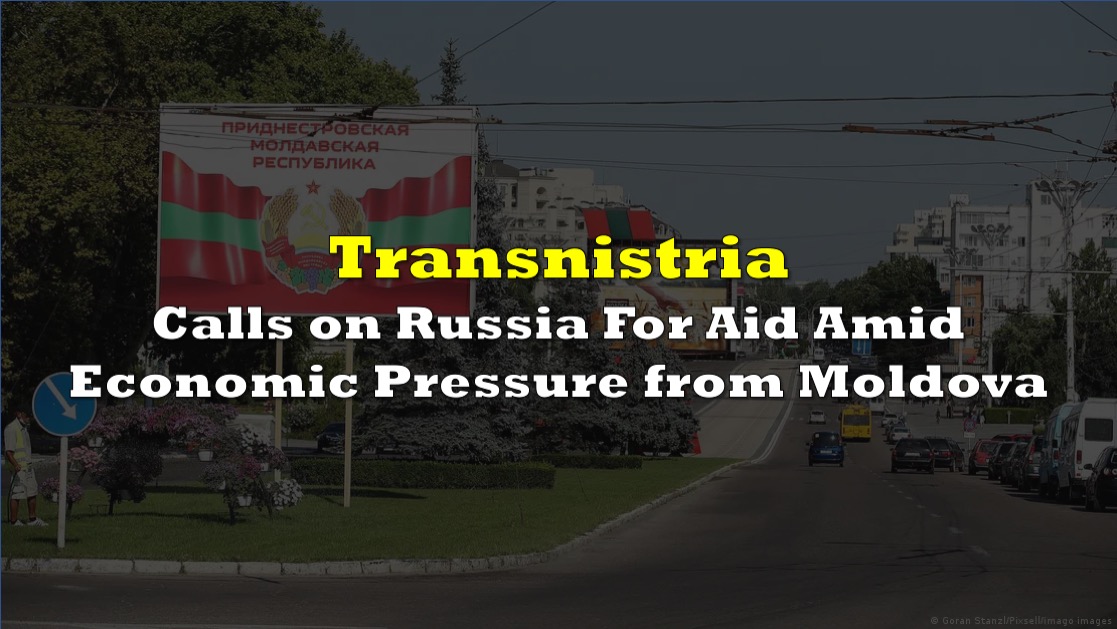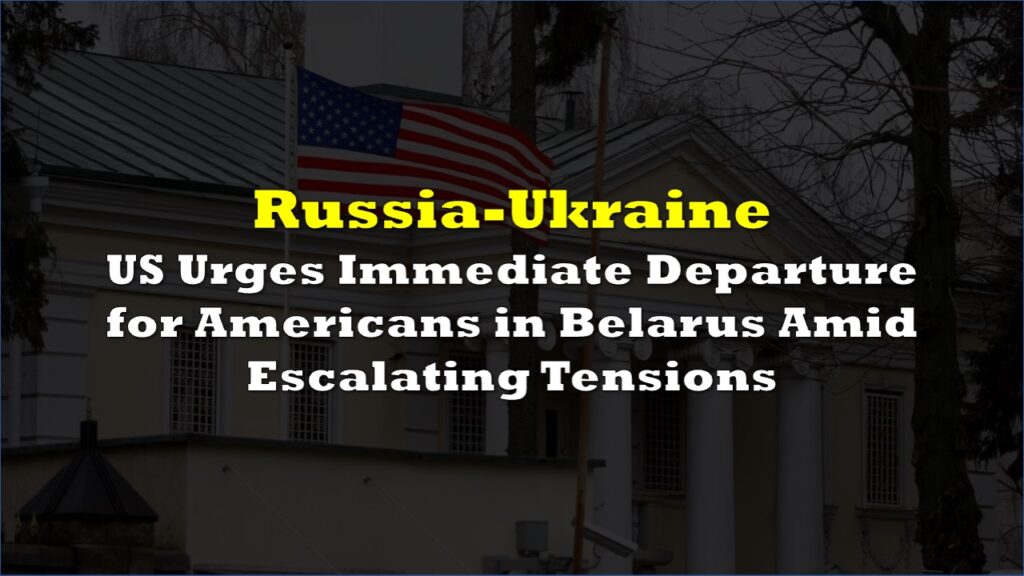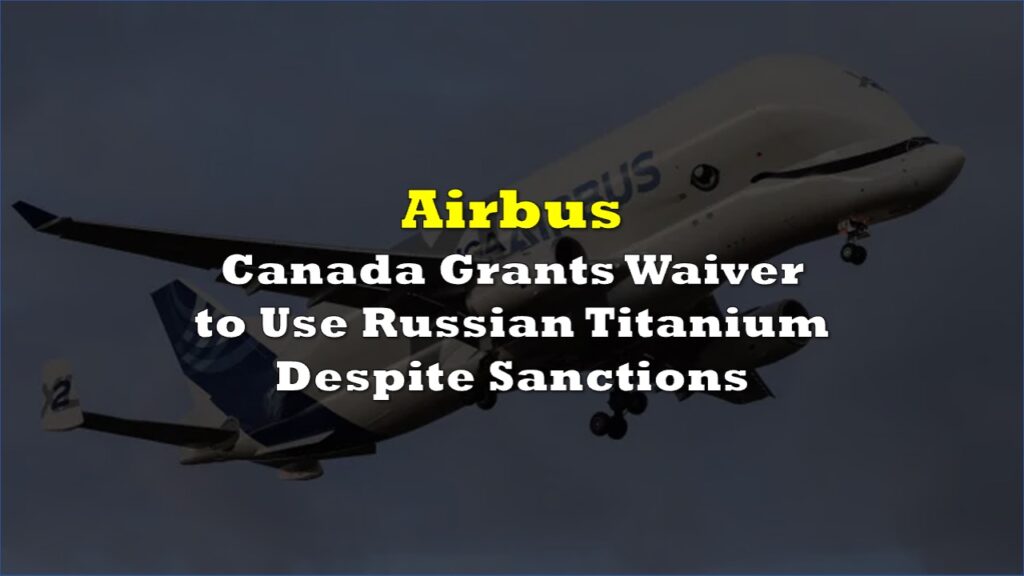Transnistria, a breakaway republic from Moldova, has officially reached out to Russia for assistance amid what it describes as “economic pressure” from Moldova’s government. The region, which organized a “congress of deputies of all levels” for the first time in 18 years, voted on this pivotal decision.
BREAKING:
— Visegrád 24 (@visegrad24) February 28, 2024
Transnistria officially calls on Russia to come to its aid amid “economic pressure” from Moldova
The breakaway republic organized a “congress of deputies of all levels" for the first time in 18 years to vote on it.
Time to re-establish Moldova’s territorial integrity pic.twitter.com/418bj4oLKA
The move signals a significant development in the ongoing struggle for Moldova’s territorial integrity, with Transnistria seeking support from its long-standing ally, Russia, against perceived threats from Moldova.
Transnistria, which seceded from Moldova during the collapse of the Soviet Union, has remained closely aligned with Russia, while Moldova has pursued closer ties with the European Union.
Congress of Deputies
The Congress of Deputies, a Soviet-era decision-making model, has historically been infrequent but significant in Transnistrian politics. It was a similar congress in 1990 that led to the creation of Transnistria, sparking a war between Moscow-backed separatists and the Moldovan government two years later.
One of the key points of interest in Transnistria is its lack of international recognition. Despite this, Russia has maintained a military presence in the region, although it has steadily decreased over time to approximately 1,500 troops.
The latest congress meeting, held on Wednesday, marked the first gathering since 2006 when a referendum calling for unification with Russia was passed. Analysts speculated that the new meeting could reignite calls for Russian integration, but instead, the congress passed a resolution seeking greater protection for Russian nationals in Transnistria from Moldovan authorities.
“Transnistria will persistently fight for its identity, the rights, and interests of the Transnistrian people and will not give up on protecting them, despite any blackmail or external pressure,” the resolution stated, as reported by Russian state media TASS.
In response, Russia’s Foreign Ministry emphasized that protecting the interests of Transnistria’s inhabitants, whom it considers “compatriots,” is a top priority.
However, Moldovan authorities dismissed the congress as propaganda aimed at stirring hysteria. Daniel Voda, a spokesperson, stated that there were no imminent dangers of escalation or destabilization in the region, branding the event in Tiraspol, the region’s capital, as a mere propaganda tool.
Moldova’s bureau of reintegration echoed this sentiment, rejecting the declarations from Tiraspol and highlighting the benefits of peace, security, and economic integration with the European Union for all citizens in the region.
US State Department spokesperson Matt Miller emphasized on Wednesday that the US is closely observing Russia’s actions in Transnistria and the broader situation, indicating a keen interest in the region’s developments.
Ukraine aftermath?
The ongoing conflict in Ukraine continues to reverberate across neighboring regions, with Transnistria feeling the brunt of its economic repercussions. Since the war began, Ukraine has shut its border with Transnistria, resulting in a significant decline in trade for the enclave, amounting to about a quarter of its total trade volume.
Although Transnistria still benefits from receiving Russian gas without charge, uncertainty looms as the agreement for gas transit through Ukraine is set to expire in December, with no guarantee of extension.
Moreover, the conflict has spurred Moldova into action, prompting efforts to resolve its longstanding dispute with Transnistria. Moldova’s pursuit of closer ties with the European Union (EU) gained momentum, with the EU granting Moldova candidate status in June 2022 and subsequently greenlighting accession negotiations in December 2023.
While Moldova’s President Maia Sandu has expressed willingness to pursue EU membership without Transnistria, reunification could streamline the accession process. A recent analysis by the Carnegie Endowment for International Peace suggested that Moldova’s strategy involves exerting pressure on Transnistria to hasten the EU integration process.
In line with this approach, Moldova took unexpected measures in January, scrapping customs duty reliefs for Transnistrian businesses. This decision forced businesses in Transnistria to pay levies to both Transnistria and Moldova, exacerbating tensions in the region.
According to Dumitru Minzarari, a security studies lecturer at the Baltic Defense College, Moldova’s reintroduction of customs duties directly prompted Transnistria’s decision to convene a special congress.
“By offering the separatist region tax exemptions, the Moldovan government had been practically funding the existence of a separatist regime in Tiraspol,” he said.
Ukraine sequel?
Had Russia’s invasion of Ukraine gone according to plan, military officials suggest that Kyiv would have fallen within days, with subsequent rapid advances across the country, potentially reaching the southwestern city of Odesa, near Transnistria.
Major General Rustam Minnekaev, the former commander of Russia’s Central Military Region, highlighted one objective of the “special military operation” as establishing a corridor through southern Ukraine to Transnistria, aiming to reunite with what Russia considers its “compatriots abroad.”
Although Ukrainian forces halted Russia’s progress at Kherson, approximately 350 kilometers from Transnistria, analysts warn that Russia’s ambitions in the region persist.
The Institute for the Study of War, a US-based think tank, cautioned against Russia’s intentions, asserting that the Kremlin seeks to leverage Transnistria as a Russian-controlled proxy to disrupt Moldova’s EU accession process and maintain influence in the region.
Drawing parallels to Russia’s actions in Ukraine in 2014, where military force was used to prevent Ukraine’s shift toward the EU, concerns arise over Russia’s efforts to thwart Moldova’s pro-Western orientation. A document from Russia’s security service, the FSB, reportedly outlined plans to destabilize Moldova and counter its alignment with the West.
Russian President Vladimir Putin’s justification for the annexation of Crimea and military operations in Donetsk and Luhansk, framed as efforts to protect Russian-speaking citizens, echoes rhetoric used by Transnistrian authorities. President Vadim Kranoselsky of Transnistria alleged that the Moldovan government was preparing terror attacks against Transnistria, a claim made without evidence.
Analysts warn that Russia’s involvement in Transnistria could be aimed at thwarting Moldova’s aspirations for closer ties with the West, mirroring its actions in Ukraine. Despite Transnistria’s plea for assistance, some analysts suggest that Russia’s refusal to annex the region could ultimately undermine its strategic goals.
Information for this story was found via CNN and the sources mentioned. The author has no securities or affiliations related to the organizations discussed. Not a recommendation to buy or sell. Always do additional research and consult a professional before purchasing a security. The author holds no licenses.









